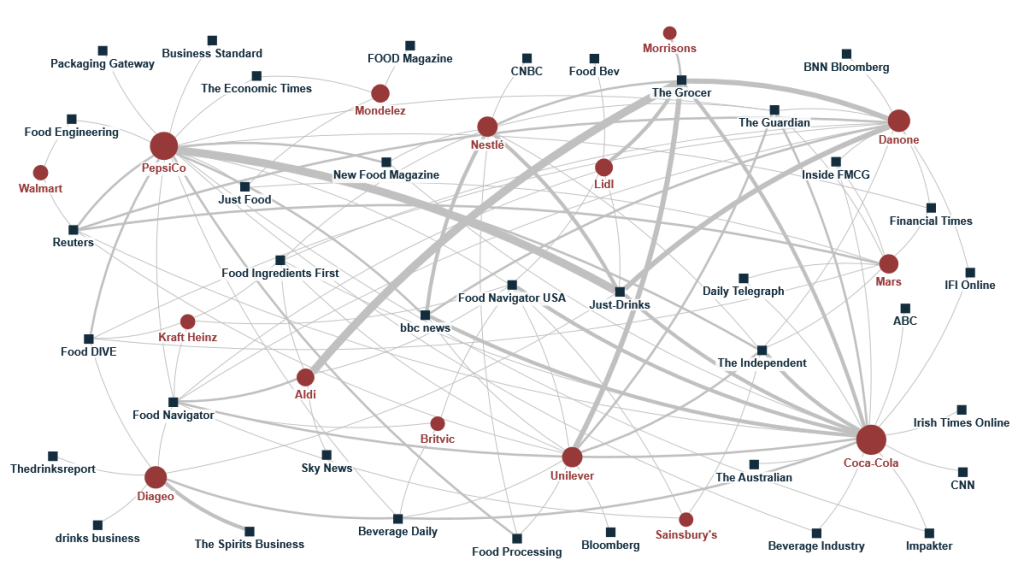As the concept of recycling is on the verge of a PR crisis, FMCG brands should refocus their ESG messaging.
What’s happening: We all do it. We purchase food and drink items, we see labels like “100% recyclable” or “100% recycled” on the plastic packaging, and our environmental conscience is appeased as we believe we’ve made a choice that benefits the planet.
This is because we’re susceptible to what researchers have recently called recycling bias – the belief that recycling is the most impactful environmental action.
This belief encourages our consumption habits and provides us with a false sense of sustainability. In reality, what’s really sustainable is reducing our consumption.
But we shouldn’t take all the blame – the concept of recycling is at the heart of every ESG initiative in the FMCG industry, perpetuating the recycling-centric mindset and overshadowing more effective solutions.
However, our analysis of 2,958 English-language FMCG articles published between August 2022-March 2024 found that the recycling narrative is showing signs of change.
Download Commetric’s media analysis report for actionable insights on sustainability comms in FMCG.
A notable 32% of articles about recycling cast a critical eye on the recycling practices of FMCG companies. In comparison, that figure was much lower (7%) for articles focusing on Reduce and Reuse initiatives.
The most prominent issue was that FMCG companies portrayed recycling as a silver bullet to the plastic crisis.
Another notable issue was that many FMCG companies, including Coca-Cola, Mars and Pepsi, are using more and more virgin plastic while promoting recycling, failing to address the core issue of plastic pollution.
Those companies were among the most prominent in the issue-driven coverage around recycling, as we discovered while mapping the conversation taking into account the media outlets (represented by squares) and the companies they referenced (represented by circles).

Meanwhile, Coca-Cola, Nestlé, Danone and Unilever were accused of greenwashing due to misleading recycling claims, as their use of terms like “100% recyclable” or “100% recycled” suggested an environmentally neutral impact despite low actual recycling rates.
What FMCG brands can do
The takeaway is clear: given the direction the media debate has taken, the concept of recycling is on the verge of a PR crisis.
Consumers may, for now, have a recycling bias. The growing criticism however has the potential to make recycling just one of those meaningless buzzwords that everybody takes with a pinch of salt.
FMCG brands would benefit from closely monitoring how this narrative develops and switch their focus to mitigate risk.
Our analysis suggests that reusing would be a good start. It’s not only that the reuse coverage in our sample was less issue-driven, it also had other advantages:
- It tackles the overarching issue: Reuse initiatives have the potential to garner more positive media attention because they reflect proactive and concrete steps to address the source of the problem – the production of new plastic materials altogether.
- It’s a good circular economy narrative: While we can only recycle plastic 2-3 times before it becomes unrecyclable, there’s no limit to reusing it. Focusing on this means promoting a circular economy, rather than merely managing waste.
- It’s not overpopulated yet. While the concept of recycling is exploited by every marketing team, very few brands and retailers have implemented a comprehensive reuse strategy or made reusing one of their reputational pillars. Reuse media stories, such as PepsiCo committing to double reusable models by 2030 or Unilever introducing reuse and refill packaging for its Dove products, have been sporadic. The first-movers advantage is still up for grabs.

